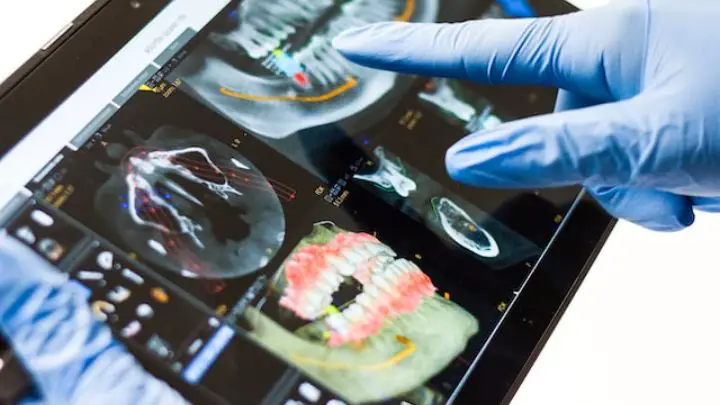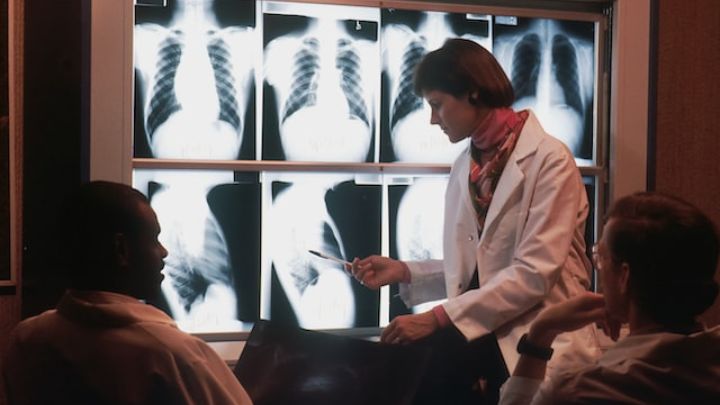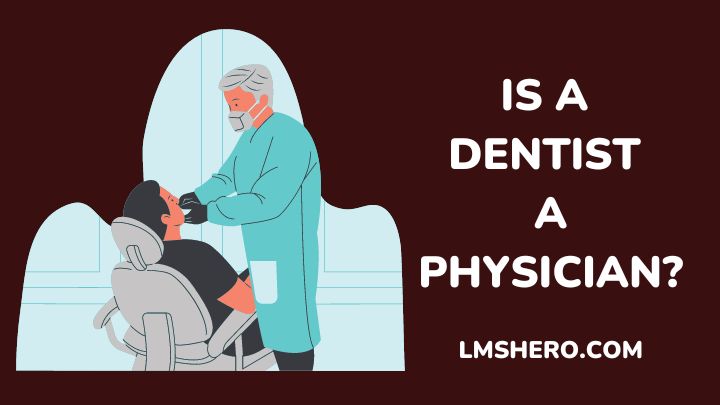When people say they have an appointment with a doctor (physician), they usually mean with an M.D. (Medical Doctor). However, it can also refer to dentists because a dentist is also a physician.
A dentist is a physician who specializes in the diagnosis and treatment of disorders affecting gums and teeth. And their core responsibility is to conduct ocular examinations, diagnostic testing, and utilize x-rays, just as physicians do.
The term “physician” refers to experts trained to study and treat the total well-being of the human body. However, most physicians specialize in a special part of the body. Hence, a dentist is technically a physician who specializes in oral health.
In this article, I explained who dentists are, their core responsibilities, and other relevant details about the profession.
Read on to learn more.
Who is a dentist?

Dentists are educated to evaluate the nerves and muscles of the head, neck, jaw, tongue, and salivary glands.
They aim to discover oral anomalies suggestive of various diseases and illnesses and offer treatment options. Dentists also treat dental ailments (diseases, traumas, and deformities).
Who is a Physician?

A physician is an educated expert who can diagnose, prevent, and cure illnesses affecting any part of the body component.
However, physicians may specialize in a single organ system or subspecialize even more (by just certain surgery types, for example). Still, they retain a foundational understanding of general medicine.
In fact, some surgeons who undertake oral and face procedures are trained as both dentists and medical specialists.
What does a Dentist do?
One of the essential roles of a dentist is to promote good dental hygiene, which helps prevent complications in your mouth or other parts of your body.
A dentist also diagnoses and treats gum, tooth, and oral disorders. Dentists undertake dental operations using cutting-edge technology and equipment such as X-ray machines, lasers, drills, brushes, scalpels, and other medical tools.
To prevent the transmission of germs or pathogens, they also wear protective equipment such as gloves, masks, and safety glasses.
Duties of a dentist include:
- Educating people about dental hygiene
- Filling cavities
- Repairing or curing tooth damage
- Examining x-rays and diagnoses
- Performing anesthesia
- Installing fillings or sealants
- Examining the development of teeth and jawbones, etc.
Dentistry necessitates a collaborative approach, with the dentist serving as the leader, working together with dental assistants, hygienists, and lab technicians. The team works together to ensure that individuals receive high-quality dental treatment.
Branches of dentistry
The following are some standard dental subfields:
- Endodontics: This is the branch of dentistry concerned with the dental pulp and related nerves. Endodontists often perform a root canal.
- Dental public health: Dentists specializing in dental public health are concerned with social health policy and the well-being of an entire community. These health professionals attempt to prevent oral illnesses on a massive scale.
- Oral and maxillofacial pathology: This oral care is provided by oral pathologists specializing in the underlying causes of particular oral disorders. To diagnose a condition, a biopsy may be performed.
- Oral and maxillofacial radiography: This is the use of x-rays and other equipment to diagnose and treat problems of the teeth and facial bones.
- Pediatric dentistry: This dentistry branch focuses on treating children with dental problems.
- Periodontics: Also known as periodontology, it is a discipline of dentistry concerned with preventing and treating disorders affecting the tissues and gums around the teeth.
- Orthodontics and dentofacial orthopedics: This branch of dentistry involves straightening teeth and correcting oral-related facial issues.
- Oral and maxillofacial surgery: This field of dentistry encompasses facial surgery, extractions, and implants.
- Prosthodontics: This is a branch of dentistry in which specialists repair implants, dentures, and bridges.
Do dentists and physicians undergo the same training?
The curriculum and organization of dentistry and medical schools are comparable. Both careers demand a rigorous four-year study program beyond the bachelor’s degree.
In their first two years of study, medical and dental school students are expected to complete biological sciences and pharmacology courses. And also take lessons in ethics, law, and clinical practice.
During the second half of medical and dental school, students work and study directly with patients under the supervision of a doctor in their respective areas.
Upon graduation, graduates from dental school with either receive a DDS (Doctor of Dental Surgery) or a DMD (Doctor of Medical Dentist), depending on the institution. However, there is no difference in the required coursework or licensure to practice.
Furthermore, after earning their degree, dentists must pass a state-specific license exam before they can practice dentistry.
On the other hand, physicians will be awarded an MD, DO, or specialist degree upon completion of medical school. Many physicians complete a residency, which is sometimes mandatory but sometimes optional, and then pursue a fellowship.
This shows that physicians often have more training than dentists. This is because, if they want to specialize in a subfield, they must first study all, to know about the human body, and only then can they focus on their area of specialty.
So, is a Dentist a Physician?
Yes, they are. Similar to how visiting your physician’s office will monitor and help you maintain your overall health, a visit to your dentist’s office monitors will support and help you maintain your oral health.
There are so many underlying medical issues linked to oral health. Hence, dentists are often the first to detect early symptoms of severe disorders such as diabetes.
Furthermore, dentists perform surgeries and help prevent harmful health complications related to oral infections and gum disease.
So, while some can debate whether a dentist should be called a physician, it is evident that both dentists and physicians undergo similar rigorous training and practices and are just as crucial to our health as medical doctors (physicians).
FAQs
How much do dentists earn?
According to Indeed, dentists earn an average of $184,511 per annum.
Is being a dentist hard?
Yes, it is. Completing a degree in dentistry is just as difficult as becoming a physician. However, considering the average earnings, it is definitely worth it.
Can you address a dentist as Doctor?
Yes. Just like you would address your physician as “Dr. Smith,” you should address your dentist as “Dr. John.”
Conclusion: Is a Dentist a Physician?
A dentist is basically a physician who specializes in oral health, however, the term “physician” refers to specialists trained to research and treat the overall well-being and health of the human body.
Dentists are skilled experts who help with tooth and mouth care, and seeing a dentist regularly can help you maintain good dental health, which can directly influence your well-being.
I hope you found this article helpful. You can also read to know if a pharmacist is a doctor.
Thanks for reading.






